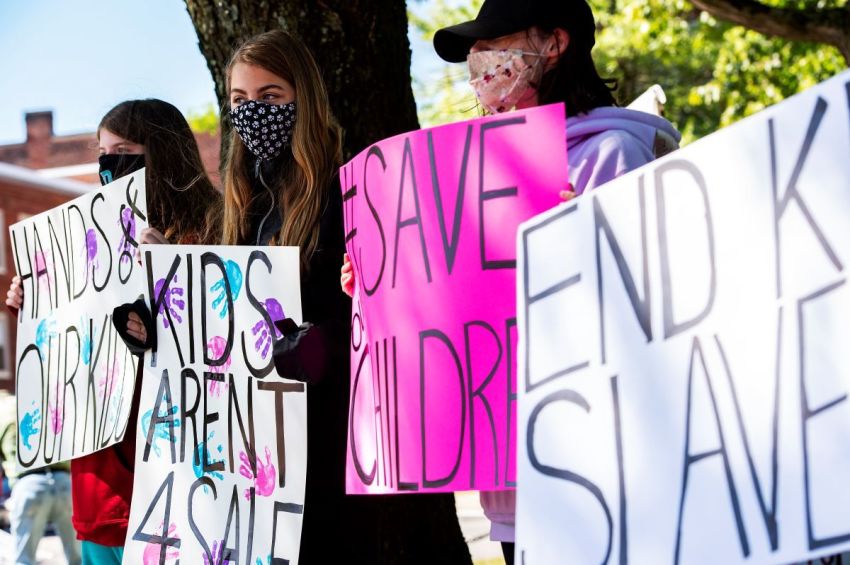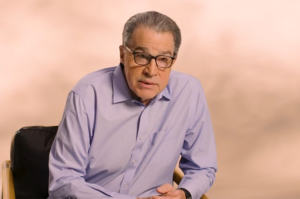Leading pediatric group details how doctors can identify child trafficking victims

One of the largest pediatric medical associations in the U.S. recently released an updated report detailing how physicians can recognize child victims of human trafficking, noting how enforcement measures aimed at reducing the spread of COVID-19 likely increased the risks of trafficking.
The American Academy of Pediatrics announced the release of the updated clinical report last week, titled “Exploitation, Labor and Sex Trafficking of Children and Adolescents: Health Care Needs of Patients.” The organization consists of 67,000 medical professionals that offer analysis and advice about how to best care for infants and young children.
Dr. Jordan Greenbaum, the study’s lead author, noted that pandemic-related lockdowns and travel restrictions isolated families and led to income losses, increasing some children’s vulnerability to trafficking.
“What is especially challenging for healthcare professionals is that individuals experiencing trafficking or exploitation may not perceive themselves as being exploited or may be reluctant to disclose their situation to medical staff,” Greenbaum said. “This makes it difficult to recognize children and adolescents in need.”
The report lists several “red flags” that physicians can look for to determine whether a child is a victim of trafficking, such as a domineering guardian or parent that refuses to let the child answer questions. Other red flags include malnutrition, signs of injury, or a history of abortions.
“Physicians can play a vital role in offering critical services to vulnerable and exploited children and adolescents,” Dr. Greenbaum said. “An important first step is to develop trusting, respectful relationships with patients who need to feel safe and supported.”
According to the International Labor Organization, 27.6 million people were in forced labor in 2021, with 6.3 million in forced commercial exploitation. Twelve percent of all those forced labor victims were children, and more than half of them were involved in commercial exploitation.
As The Christian Post reported, Illinois' decision to repeal its Parental Notice of Abortion Act in June raised concerns about removing a potential safeguard for young girls that are victims of abuse or trafficking. The state House and Senate voted to repeal the act in October, with Gov. J.B. Pritzker signing it into law in December.
Due to years of litigation, the original 1995 law did not go into effect until 2013. Under the law, underage girls were required to notify their parents before having an abortion. The notification requirement could be waived, however, if teenagers met privately with a judge and obtained a judicial bypass.
Amy Gehrke, executive director of Illinois Right to Life, told CP at the time that she was “appalled” by the law’s repeal. The Chicago-based advocate said the decision to repeal the law is proof that Pritzker and Illinois legislators care more about "placating the abortion industry than the will of their constituents."
She noted that the original law required abortionists to certify in a girl’s medical record if a young woman informed them that she was a victim of abuse.
In addition, the judicial bypass option provided abused girls with an opportunity to tell a judge about their situation during a private meeting.
"Gov. Pritzker has told the parents of Illinois that they don't matter and has completely trampled on their rights to be involved in the health decisions of their minor daughters," Gehrke said.
"We know that human traffickers and other sexual predators often cover their crimes with abortion. And our Legislature, along with Gov. Pritzker, has given these abusers carte blanche to continue abusing our girls."
A 2014 study published by Annals of Health Law found that 55% of sex trafficking victims were forced to undergo abortions, with 30% being forced to have more than one. One survivor told the study authors her trafficker took her to Planned Parenthood for one of her six abortions "because they didn't ask any questions."
"This is actually an issue that transcends abortion, and it goes to the heart of parents' rights and protecting young girls from those who would seek to do them harm by covering their crimes with abortion," Gehrke said.
Samantha Kamman is a reporter for The Christian Post. She can be reached at: samantha.kamman@christianpost.com. Follower her on Twitter: @Samantha_Kamman



























